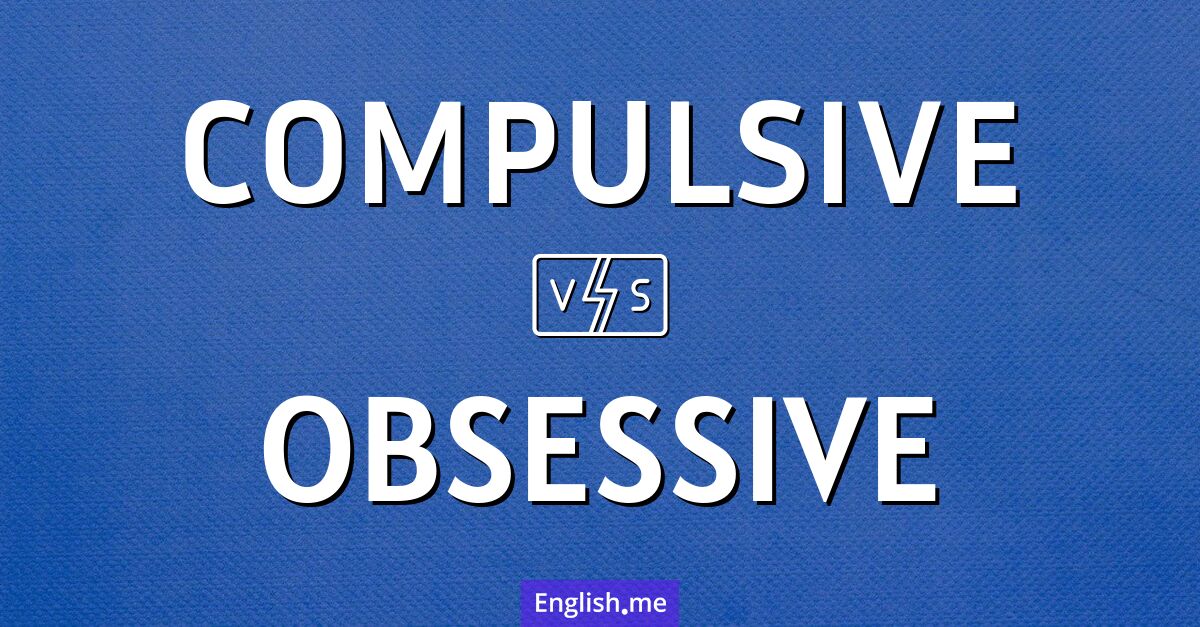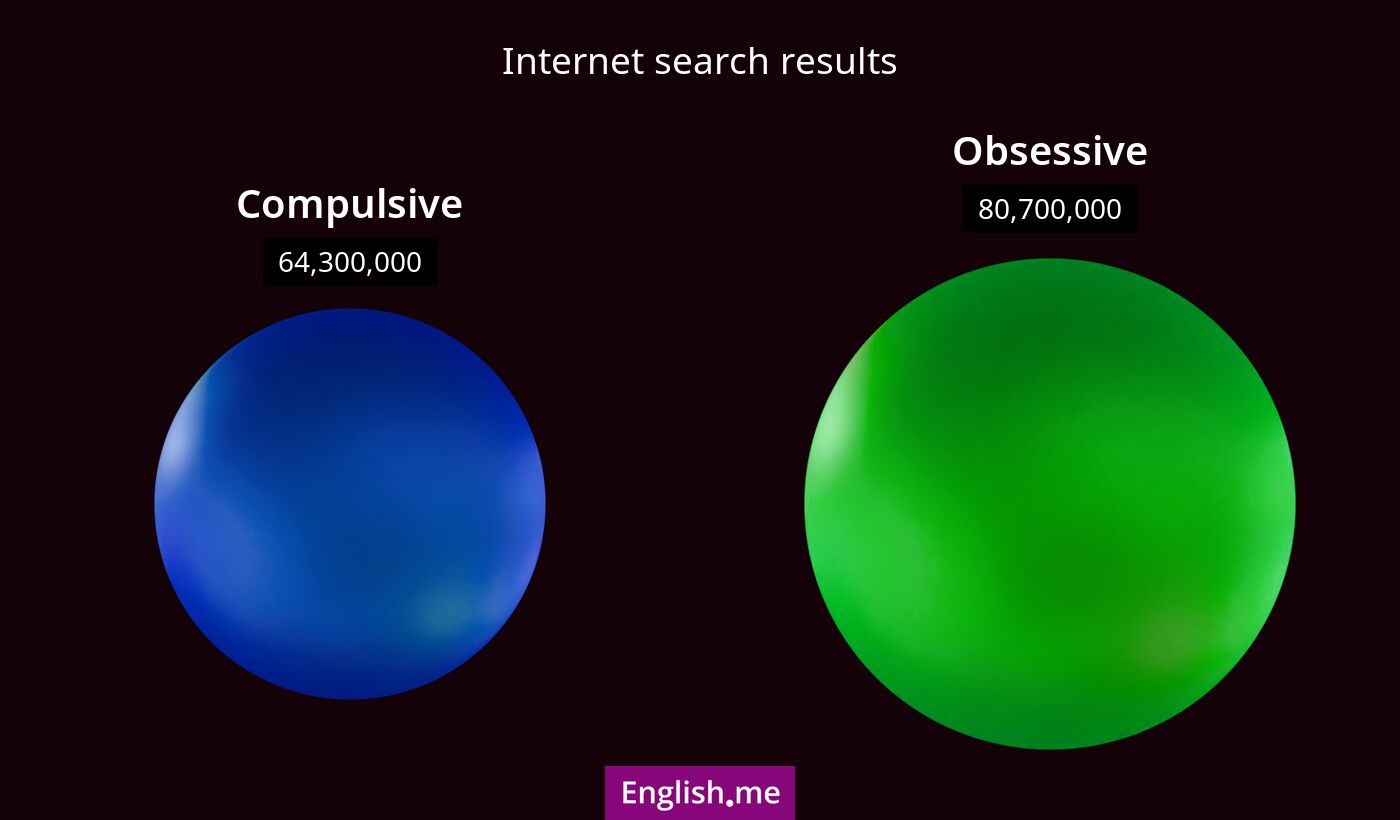"Compulsive" vs. "obsessive": distinct drives, intertwined minds
Reviewed and edited by  Lloyd Cooper 14/11/2024, 22:48
Lloyd Cooper 14/11/2024, 22:48
English.me team member

 What is similar?
What is similar?
Both "compulsive" and "obsessive" refer to behaviors or thoughts that are repetitive, intense, and difficult to control. They are often used in the context of mental health issues, such as obsessive-compulsive disorder (OCD), where they describe different aspects of the condition.
 What is different?
What is different?
The term "compulsive" specifically refers to actions or behaviors that are performed in response to an irresistible urge, often to reduce anxiety or discomfort. "Obsessive", on the other hand, refers to persistent, intrusive thoughts or preoccupations that dominate a person's thinking. While compulsions are actions, obsessions are thoughts.
 Which one is more common?
Which one is more common?

 Examples of usage
Examples of usage
Compulsive- She had a compulsive need to check the locks several times before leaving the house.
- Compulsive gambling can lead to severe financial problems.
- His compulsive habits disrupted his daily routine.
- He had an obsessive interest in collecting vintage cars.
- Her obsessive thoughts about cleanliness caused her a lot of anxiety.
- The artist's obsessive dedication to his work was evident in every painting.

 English
English español
español française
française italiano
italiano deutsche
deutsche 日本語
日本語 polski
polski česky
česky svenska
svenska Türkçe
Türkçe Nederlands
Nederlands